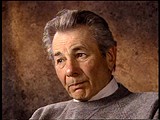You searched for: ���������������������������������������������������������������������cxfk69���just
<< Previous | Displaying results 531-540 of 572 for "���������������������������������������������������������������������cxfk69���just" | Next >>
-
The Sicherheitsdienst (SD)
ArticleThe Sicherheitsdienst (Security Service, SD) was a Nazi intelligence agency. Ideologically radical and part of the SS, it was a key perpetrator of the Holocaust.
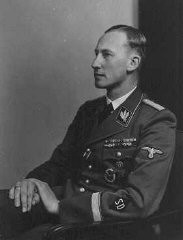
-
Axis Powers in World War II
ArticleThe three principal partners in the Axis alliance were Germany, Italy, and Japan. Learn more about the Axis powers in WW2.
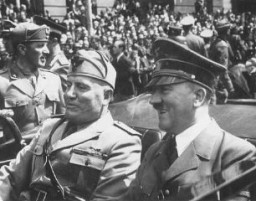
-
Alice (Eberstarkova) Masters describes leaving Czechoslovakia on a Kindertransport (Children's Transport)
Oral HistoryAlice grew up in a small village in Czechoslovakia. She was the middle of three daughters in a well-to-do, close-knit family. Her parents were religious and active in the Jewish community. After the German annexation of parts of Czechoslovakia in March 1939, antisemitism became more pronounced. Alice's uncle, a businessman who had moved to Great Britain, helped her parents arrange to send Alice and her two sisters on a Kindertransport (Children's Transport) to Britain. The sisters lived in a children's…
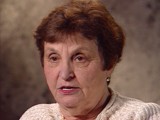
-
Frima L. describes surviving as a young child on her own
Oral HistoryWhile Frima's family was confined to a ghetto, Nazis used her father as an interpreter. He later perished. By pretending not to be Jews, Frima, her mother, and sister escaped a German mobile killing unit massacre. They were later discovered and jailed. Again, her mother devised an escape. Frima's mother and sister were smuggled to Romania, while Frima wandered in search of safekeeping until her mother could arrange to smuggle her out. In Romania, they were reunited and liberated.
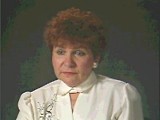
-
Frank Bleichman describes conditions in and dangers facing a partisan camp in the forests of Poland
Oral HistoryFrank was one of seven children born to a religious Jewish family in Kamionka, in the Lublin district of Poland. Germany invaded Poland in September 1939. When deportations of Jews from the Lublin area began in 1942, Frank joined a group of Jewish partisans who roamed the forests in search of weapons and food. After obtaining weapons by posing as Soviet paratroopers, they were able to defend themselves against German raids and take revenge against collaborators. They gradually made connections with Polish…
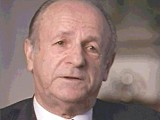
-
Vladka (Fagele) Peltel Meed describes waiting at a train station with false documents to be smuggled into the Warsaw ghetto
Oral HistoryVladka belonged to the Zukunft youth movement of the Bund (the Jewish Socialist party). She was active in the Warsaw ghetto underground as a member of the Jewish Fighting Organization (ZOB). In December 1942, she was smuggled out to the Aryan, Polish side of Warsaw to try to obtain arms and to find hiding places for children and adults. She became an active courier for the Jewish underground and for Jews in camps, forests, and other ghettos.
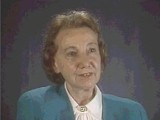
-
Blanka Rothschild describes returning to Lodz after the war to look for family members
Oral HistoryBlanka was an only child in a close-knit family in Lodz, Poland. Her father died in 1937. After the German invasion of Poland, Blanka and her mother remained in Lodz with Blanka's grandmother, who was unable to travel. Along with other relatives, they were forced into the Lodz ghetto in 1940. There, Blanka worked in a bakery. She and her mother later worked in a hospital in the Lodz ghetto, where they remained until late 1944 when they were deported to the Ravensbrueck camp in Germany. From Ravensbrueck,…
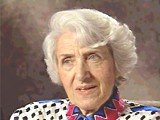
-
Madeline Deutsch describes adjusting to social and educational life after the war
Oral HistoryMadeline was born into a middle class family in an area of Czechoslovakia that was annexed by Hungary in 1938-1939. Her father worked out of their home and her mother was a homemaker. Madeline attended high school. In April 1944 her family was forced into a Hungarian ghetto. The family lived in the ghetto for two weeks before being transported to Auschwitz. Madeline and her mother were separated from her father and older brother. Neither her father nor brother survived the war. A week after arriving in…
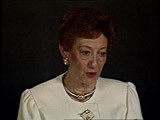
-
Doriane Kurz describes how she and her brother were hidden
Oral HistoryDoriane's Jewish family fled to Amsterdam in 1940, a year that also saw the German occupation of the Netherlands. Her father perished after deportation to Auschwitz. After their mother was seized, Doriane and her brother hid with gentiles. The three were reunited at Bergen-Belsen, where they were deported via Westerbork. They were liberated during the camp's 1945 evacuation. Doriane's mother died of cancer soon after Doriane helped her recover from typhus. Doriane and her brother immigrated to the United…
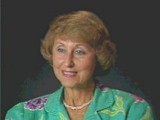
-
Wilek (William) Loew describes the roundup of Jews during August 1942 deportation from Lvov to Belzec
Oral HistoryWilek was the son of Jewish parents living in the southeastern Polish town of Lvov. His family owned and operated a winery that had been in family hands since 1870. Wilek's father died of a heart attack in 1929. Wilek entered secondary school in 1939. Soon after he began school, World War II began with the German invasion of Poland. Lvov was in the part of eastern Poland annexed by the Soviet Union. Although the Soviets took over Wilek's home and the family business, Wilek was able to continue his…
